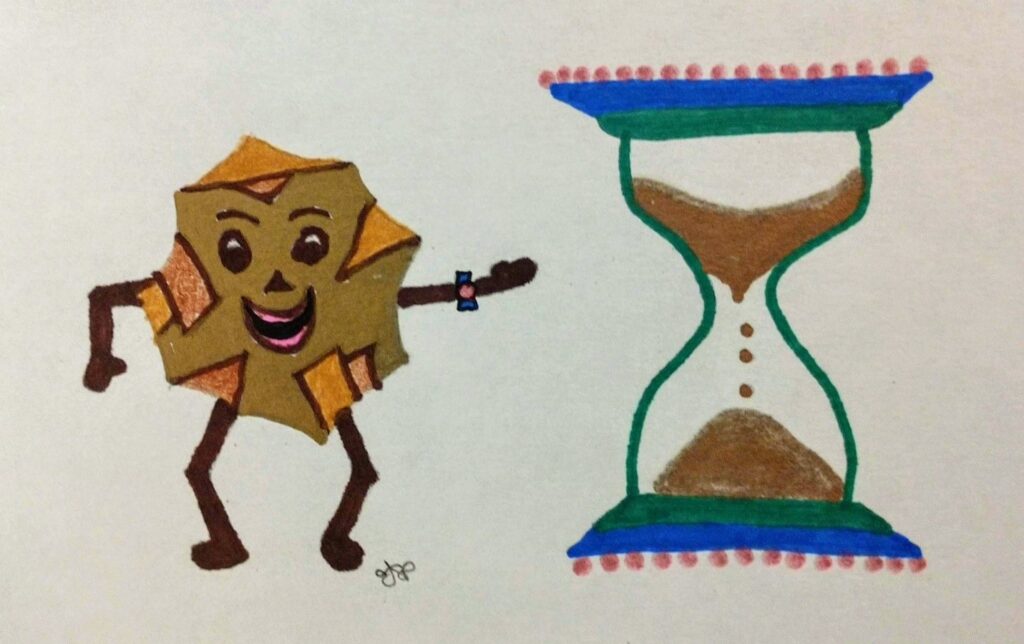One of the world’s greatest resources moves at its own pace.
Each day I drive to work, it’s a half hour drive down the same highway. Last year, Nebraska raised the speed limit on many of the highways, theoretically lowering the amount of time needed to spend on the road on your way to your destination, but also increasing the chances of something not-to-pleasant happening. It seems that as time passes, so does everyone’s insistence upon going faster. As the character Brooks found in the movie The Shawshank Redemption when he was released from prison, the world has progressively got itself into a hurry.
We also don’t want to wait. Fast food, instant drinks, guaranteed delivery times, drive-up services, overnight orders, no appointments needed. We call the postal service “snail mail” because it isn’t electronic, and who writes a letter by hand anymore? Speed and online dating have been available for years. Technology does everything now—there’s even an app available for crop scouting. Too bad it can’t actually walk out there and tell you what’s wrong with your crop.
Some of the best things aren’t created overnight, though. There’s nothing like a well thought out, hand-written card sent by mail, addressed to only you, your name written in ink on the envelope. And although you might meet someone online or via a quick date, can you really get to know them in one date? It takes time to know someone. A good wine must age. So must a good personality.
Soil knows this, too. It takes a LOT of time to create soil in the first place. Soil comes from a “parent material”, which is ancient windblown, rain-washed, weather-worn, and time-stamped minerals and materials. We’re talking eons here.

Organic matter content in soil is related to many positive qualities—including aggregation, water infiltration, water holding capacity, soil structure, biological processes, long term nutrient content and capacity, and yield response. Organic matter is a mix of decomposing manure and plant material, earthworm casts, microbes, invertebrates, and humus. It takes time to build. Years, in fact. You can’t just dump some manure on a field, wait a year, and expect organic matter to jump up significantly. Soil takes time. It’s not in a hurry. You can’t honk a horn at it, flip it off, pass it in the passing lane, or tail it bumper-to-bumper. It will still take its own time.
That manure you applied and that old plant matter and those dead critters (microbes, invertebrates, insects, arthropods) in the soil will eventually break down and change into that lovely organic matter to help you out. It takes chemical and physical reactions that we can’t rush—and we can’t duplicate, either. We have to feed the system, and create the right circumstances to allow the processes to happen. But it will happen.
We talked in another blog about the difference between surface and ground water. Since groundwater is held in the ground, and soil is the ground, recharging or a change in groundwater takes a long time to show up as well. Recharging the groundwater from the drought of 2012 is just now showing up; groundwater levels are rising. And the crazy weather we had last year (2019)? That was mostly surface water changing through flooding. Give it time, and that water hanging about will trickle down into the groundwater, too, and we’ll have more of it in stores—if it doesn’t all run away first. But it will be accounted for. Soil just takes time.
Soil isn’t one big block of solid mass—there are very small “holes” in it, too, and that’s where the air and water are held. Gradually, the water on the surface travels down to the storage area—the groundwater. Little by little, if it isn’t used right away for another part of the water cycle, water drops from one “hole” to the next via gravity and osmosis until it is collected into the aquifer. Then it can be stored until needed later. That’s a good thing, right? It just takes time. Which soil knows it has. There’s always time for soil. We as humans just don’t think we have any.
Perhaps we need to take a page out of soil’s instruction book and learn to wait a bit. What’s another couple of minutes, of hours, of weeks, of years?
After all, the best things come to those who wait. Or so I’ve been told.
Thanks for reading,
